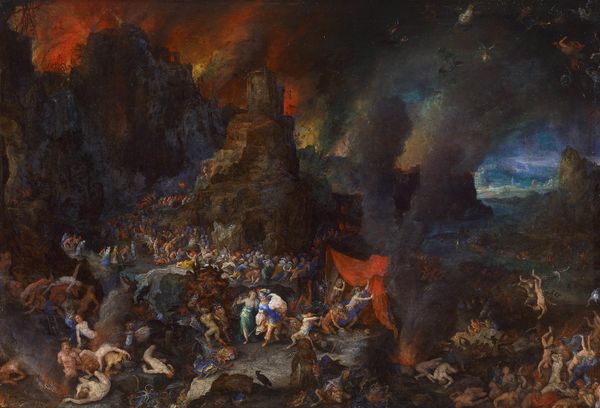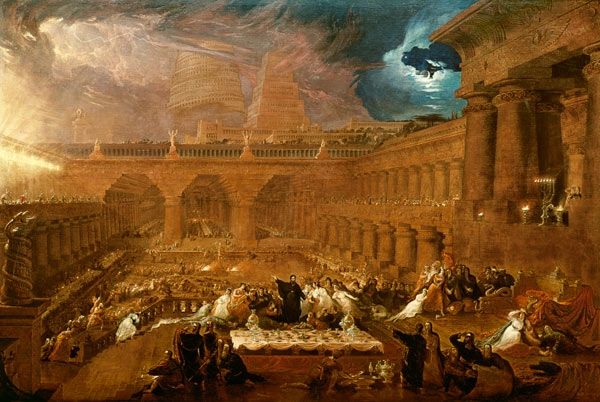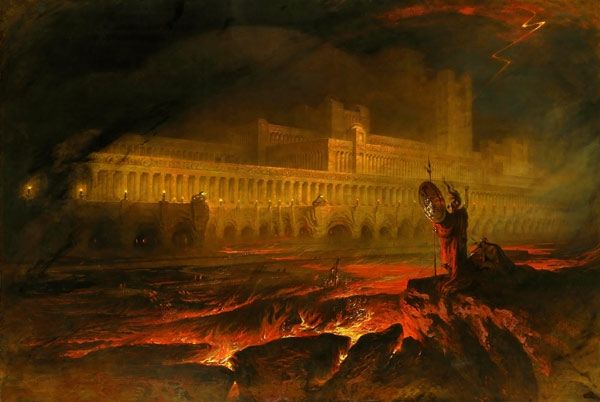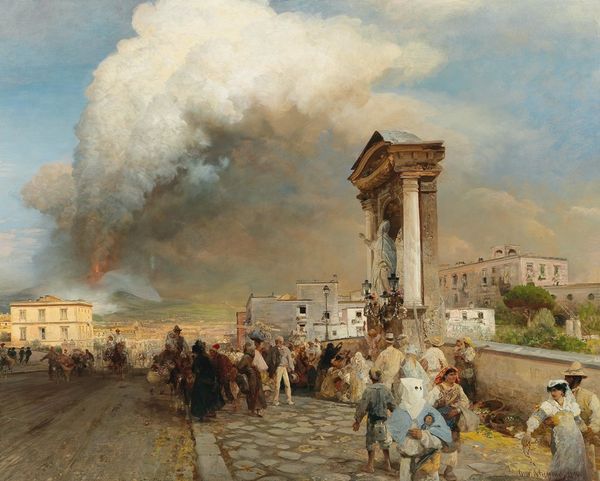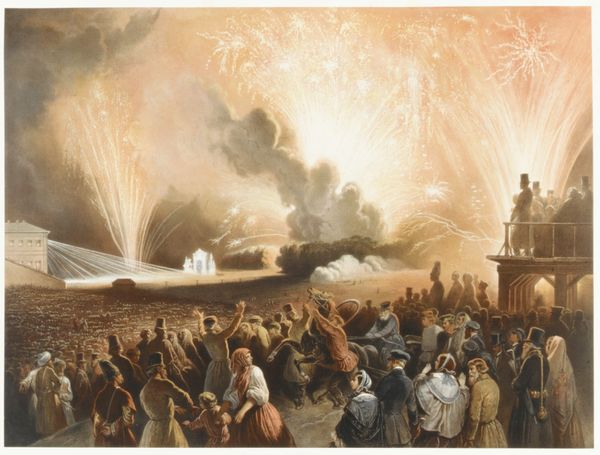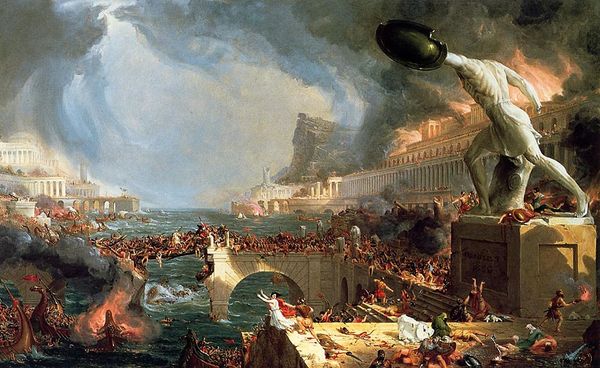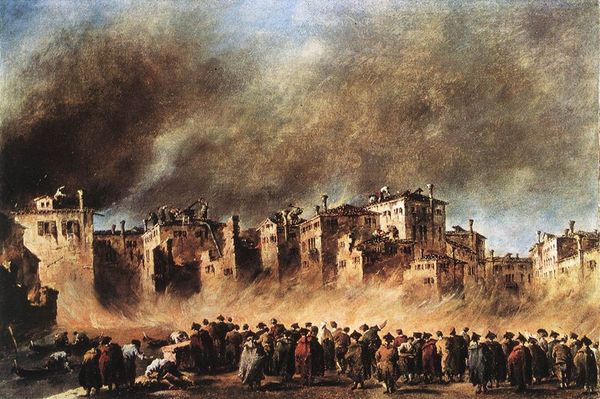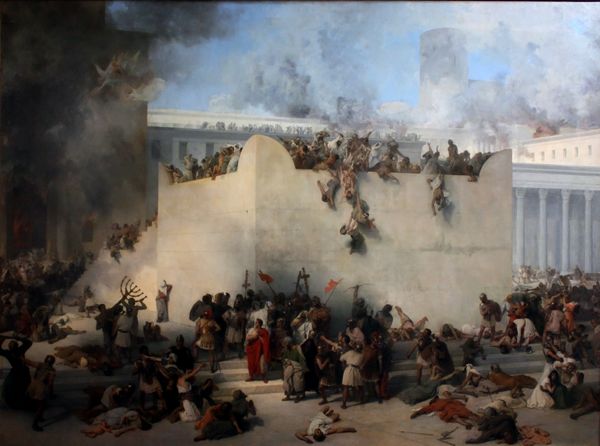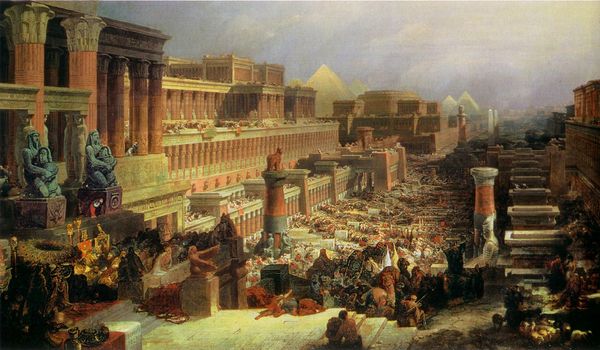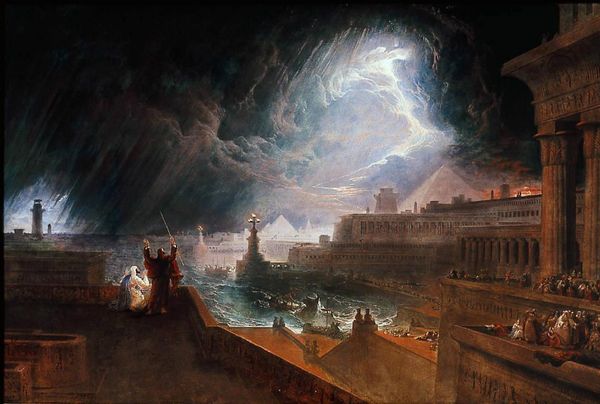
watercolor
#
narrative-art
#
landscape
#
oil painting
#
watercolor
#
romanticism
#
cityscape
#
history-painting
#
watercolor
Copyright: Public Domain: Artvee
Curator: What a bleak yet powerful vision! It’s hard not to feel a sense of devastation looking at this piece. Editor: Indeed. This is David Roberts' "London: The Destruction of a City," created in 1832 using watercolor. Roberts clearly captures a dramatic moment. Curator: For me, this artwork feels deeply entrenched in the anxieties of early 19th-century England. The rapid industrialization, the fear of social unrest mirroring the French Revolution... it speaks to a very real cultural fear of societal collapse. Are we seeing a metaphorical London, here? A stand-in for civilization's fragility? Editor: Interesting point! Formally speaking, the painting certainly amplifies that sense of impending doom. Notice the dramatic use of light and shadow, how the cool tones of the architecture contrast with the fiery oranges consuming the city. The diagonal composition thrusts your eye upwards, toward the chaos. Curator: The way he positions the figures—some clearly in distress, others seemingly indifferent—it hints at class divisions, the uneven distribution of suffering when systems fail. What commentary is offered about how society treats the most vulnerable among us during times of upheaval? Editor: That might be stretching it, perhaps. Look, there's definitely an emphasis on perspective—the detailed foreground versus the hazier background creates a sense of immense scale, of forces beyond human control. It reminds me of Piranesi's engravings of Roman ruins, where the architectural details communicate power, and the power of destruction. Curator: Precisely. It asks us to consider what 'progress' truly means. Do we truly believe it will be endless, or are we, as a society, forever teetering on the edge of our own self-destruction? Are we living in an inferno we build ourselves? Editor: Whatever Robert’s intentions, that interplay of architectural precision with catastrophic ruin makes this more than just a history painting. Curator: Ultimately, it serves as a potent reminder: history is neither linear nor guaranteed. A very useful lesson, perhaps now more than ever. Editor: Yes, a useful memento mori to keep in mind, that's very astute.
Comments
No comments
Be the first to comment and join the conversation on the ultimate creative platform.
